The article will tell you in detail about what probiotics are, why they are needed and how to distinguish them from prebiotics.
Contents of
- What is a probiotic?
- Probiotic and prebiotic: what's the difference?
- Which probiotic is better for the intestine when taking antibiotics for adults?
- Which probiotic is better for the intestines when taking antibiotics for children?
- List of the best probiotics for diarrhea, diarrhea, dysbiosis for adults and children
- List of the best probiotics for constipation for adults and children
- The best probiotics for newborns: list
- Probiotic - Maxillac: indications, instructions for use
- Probiotic - Vetom: indications, instructions forapplication
- Probiotic - Super 8: indications, instructions for use
- Probiotic - Narine: indications, instructions for use
- Probiotic - Enterol: indications, instructions for use
- ProbioticHoli Land: indications, instructions for use
- Probiotic - Linex: indications, instructions for use
- Probiotic - Bifidumbacterin: indications, instructions for use
- Probiotic - Bifiform: indications, instructions for use
- Probiotic - Hilak Forte: indications, instructions for use
- Probiotic - Primadofilus: indications, instructions for use
- Probiotic - Acidophilus: indications, instructions for use
- What is a probiotic in kefir?
- Video: "Probiotics and prebiotics: what is it and what do they need?"Tips for parents »
What is a probiotic?
Probiotics are microorganisms that can quickly restore the intestinal microflora and have a positive effect on the entire body. With certainty it can be said that probiotics are not only useful, but also vitally important for the body. The duty of probiotics is to improve the digestion of nutrients in the intestines that are found in food.
All probiotics can be divided into two groups:
- Bifidobacteria
- Lactobacilli
These are the groups of microorganisms that are in probiotics. It is important to understand that depending on the manufacturer, each preparation may contain more or less useful bacteria( in different proportions).For this reason, the doctor can prescribe to the patient the use of different medications, depending on the problem. The probiotic is not a panacea for all problems, it should be used correctly so that the drug really helps.
The probiotic has several actions:
- To produce antibodies capable of supporting immunity in the human body.
- Contribute to strengthening the gastrointestinal mucosa
- Prevent the intestines from being filled with "harmful" and pathogenic bacteria.
- Block the growth of pathogenic bacteria( microflora) and inhibit the synthesis of dangerous compounds.
- Destroy the vital activity of "harmful" bacteria
- Produce vitamins of group B, which are necessary for good metabolism in the body.
IMPORTANT: Probiotics do not allow reproduction of "harmful" bacteria, eliminating their life-giving products. Probiotics form a special protective shell on the mucosa and therefore pathogenic microorganisms simply can not attach to the walls of the intestine. This is what is the prevention of dysbiosis in humans( poisoning).
Probiotics help to create the "right" microflora in the body, which helps to suppress pathogens. Among other things, probiotics allow you to digest protein, strengthen the immune system and participate in the digestive process. We can safely say that the more "rich" the microflora of the human intestine for beneficial bacteria, the stronger is its health.
INTERESTING: During pregnancy, probiotics are useful in helping to maintain the health of not only women, but also the fetus. A healthy organism is protected from premature birth and has strong immunity, the woman does not suffer from inflammatory diseases, gynecological problems and pathologies, infections.
 Probiotic Action
Probiotic Action Probiotic and prebiotic: what's the difference?
Human immunity is formed precisely in the intestine and therefore it is important to form a normal, healthy microflora in it. It is important not to take drugs with beneficial bacteria on your own, but listen to the doctor's recommendations. Because of the wrong balance of microorganisms in the intestine, you may not get the benefit and even achieve a deterioration in health.
Probiotics is a complex of microorganisms, which contain "useful" bacteria, yeast fungi and some varieties of non-pathogenic E. coli. The lack of probiotics is determined by the analysis of feces. A probiotic is prescribed in cases of dysbacteriosis, acute respiratory viral infection, avitominosis, immune diseases, influenza, parasite infestation, intoxication.
Prebiotics are special components in food that stimulate the increase of "beneficial" bacteria in the intestines. Prebiotics can not be absorbed and not absorbed. Prebiotics are a nutrient medium for a probiotic. Simply put, the use of prebiotics improves the growth of probiotics, which means better health and work of the digestive tract.
Prebiotics include:
- saccharides
- Enzymes
- Antioxidants
- Amino
Where contain prebiotics:
- milk and milk products
- grains and cereals
- Fruits and berries
- vegetables, garlic
- Greens
include Prebiotics:
- Lactulose and lactose- is found in dairy and fermented milk products.
- Inulin - found in vegetables
- Pectin - cleanses the intestines and has a healing effect.
- Fructosaccharides - are found in vegetables, fruits and berries.
- Dietary Fibers - polysaccharides( which have a laxative effect on the intestines).
Prebiotics should in no case promote the propagation of pathogenic bacteria. Always pay attention to the composition of the drug with prebiotics and do not take one that has starch. The best and most effective prebiotic is that based on inulin.
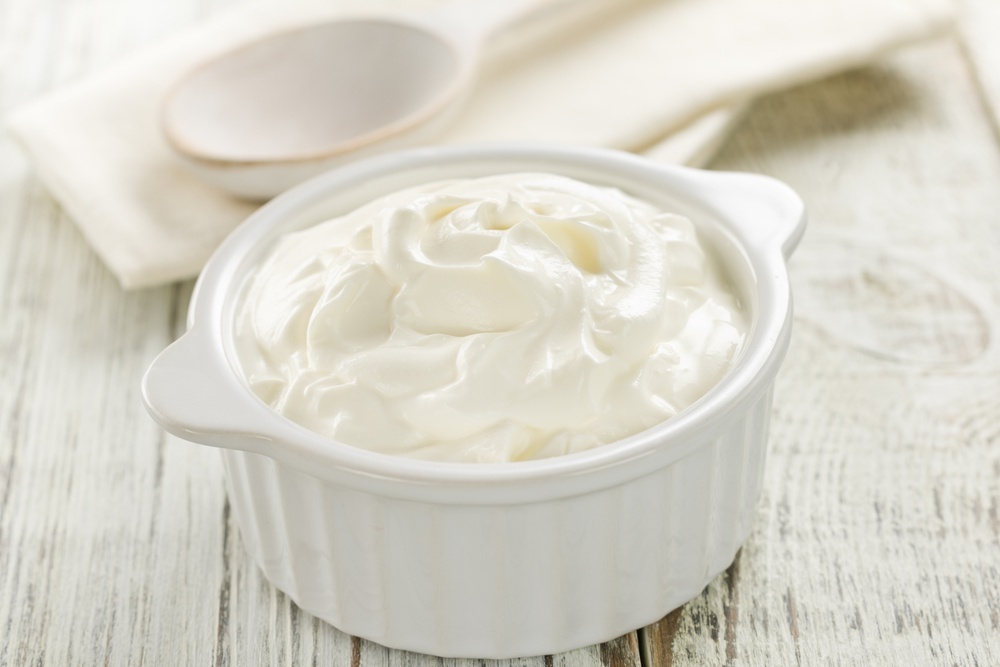 How to distinguish a probiotic from a prebiotic?
How to distinguish a probiotic from a prebiotic? Which probiotic is better for the intestine when taking antibiotics for adults?
Antibiotics are drugs that "kill" the intestinal microflora( both "good" bacteria and pathogens).That is why to restore the balance of microorganisms in the intestines, responsible for human health, by taking probiotics. There are several strict rules that require strict adherence to the receipt of these medications and help you determine which particular remedy should be taken.
In the selection it is important to pay attention to such nuances:
- Any antibiotic to you should be prescribed only by the doctor and only if necessary. An antibiotic is a powerful remedy that not all people can experience safely.
- The doctor corrects your treatment for , based on tests and then determines which microorganisms in your intestines have caused the disease. So is the probiotic, its task is to restore the flora and make it qualitatively capable only of a properly selected preparation based on the results of repeated analyzes.
- Adhere to a strict diet of nutrition while taking prescribed probiotics. This is another "secret" of your quick and qualitative recovery. Reception of antibiotics badly affects the liver and therefore during the period of treatment and recovery it should not be loaded with heavy food( fried, fatty, salty, smoked, canned).Saturate your diet with foods that are rich in probiotics.
 Food with probiotics
Food with probiotics Which probiotic is better for the intestine when taking antibiotics for children?
As with adults, for children, the choice of probiotic depends only on what antibiotic treatment was used and what kind of intestinal microflora is present after the course of treatment( determined by the analysis of feces).Choosing the wrong probiotic, which parents often do on their own, can lead to unpleasant consequences and a long recovery of the child.
IMPORTANT: Each parent should record all cases when the child was treated with an antibiotic. This will allow the doctor to determine the child's tolerability of certain drugs and adjust the effective treatment. During the intake of antibiotics and probiotics, the child should follow a strict diet, which will help him to quickly restore health.
List of the best probiotics for diarrhea, diarrhea, dysbiosis for adults and children
If the intestinal microflora is disturbed, this imbalance leads to a lot of unpleasant consequences for the person:
- Digestive system diseases
- Dysbacteriosis
- Diarrhea( diarrhea)
- Abdominal bloating and increased gushing
- Flatulence
- Diarrhea that can change into constipation
- Enterocolitis
- Gastritis
- Ulcer
- Immunodeficiency
- Respiratory viral infections
- Allergic reactions
Infectious diarrhea( ie, diarrhea that occurs due to infection by pathogens) always occurs due to rotavirus infection. It is possible to get rid of the cause of the disease only by suppressing the "harmful" flora. However, it is impossible to recover if the normal and healthy intestinal microflora is not restored. That's why a probiotic is prescribed.
Probiotics are available in several forms:
- Powders
- Suspensions
- Capsules
- Tablets
IMPORTANT: All preparations contain dried "useful" bacteria.
List of the best probiotics:
- Bacteria "Lactobacterin"
- Bacteria "Bifidumbacterin"
- Bacteria "Biosporin" and "Enterol"( also inhibit the propagation of pathogenic flora).
- Bacteria "Acilact" and "Bifilong"
- Bacteria "Kipatsid"( probiotics and prebiotics)
- Bacteria "Bififarm"( polycomponent drug)
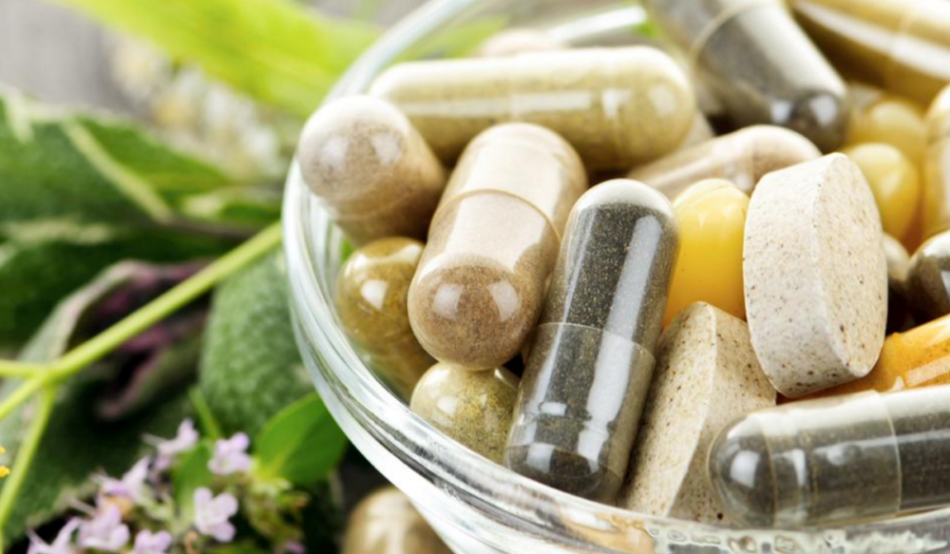 Receiving probiotics
Receiving probiotics List of the best probiotics for constipation for adults and children
Getting rid of such an unpleasant phenomenon as constipation, can be produced by taking probiotics. These drugs contain a number of living and "useful" bacteria, which restore and normalize the microflora in the intestine, which is necessary for normal vital activity and defecation. It is worth noting that the treatment of constipation with probiotics can be very long. But, in any cases, it turns out to be effective.
Probiotics are indicated for:
- constipation
- problems with a chair
- inflammatory bowel
- colic
- poor appetite
- blood during the withdrawal feces
- weak immunity
best "good" bacteria to get rid of constipation:
- Lactobacillus
- Bifidobacteria
- E. coli( non-pathogenic)
- Streptococcus
With constipation, it is difficult for a person to get rid of the products of his life. This gives not only a feeling of discomfort, but also a lot of unpleasant symptoms: pain, flatulence, poor appetite. To get rid of them will help symbiosis of probiotics and prebiotics( cultures of micro-organisms that exert a positive influence on the chair, softening it).
The most popular formulations for constipation:
- Lineks
- Bifidumbacterin
- Profiber
- Bifiform
- Narine
- Primadofilus
- Biovestin
The best probiotics for newborns: the
listPreparations for the newborn, which help to stimulate the digestion process, are completely harmless to health. However, it is important to know that choosing a probiotic to your child yourself is a crime. Correct treatment and choice of funds should only the children's doctor, focusing on the symptoms and tests.
IMPORTANT: Not all probiotics available in the assortment of pharmacies are allowed for use by an infant, because their effect on the children's organism has not been studied so far.
What are the drugs allowed for infants:
- BioGaa drops - is a drug based on lactobacilli, which prescribes to those children that have frequent and painful colic, regurgitate, have intestinal microflora, poor immunity, constipation. The drug has a number of strict contraindications, such as, for example, kidney disease or diabetes mellitus.
- "Bifiform Baby" - suspension containing bifidobacteria and streptococci. This remedy perfectly copes with colic and bloating.
- "Prema Kids" - drops containing bifidobacteria and lactobacilli. The drug improves the digestive process, eliminates colic and swelling. Normalizes the stool.
- Sasha "Laktomun"( "Ecological Panda") - preparation is intended for use by children born before the term and having problems with the immune system.
- "Simbiter" - is a multicomponent drug that is approved for use only from 6 months.
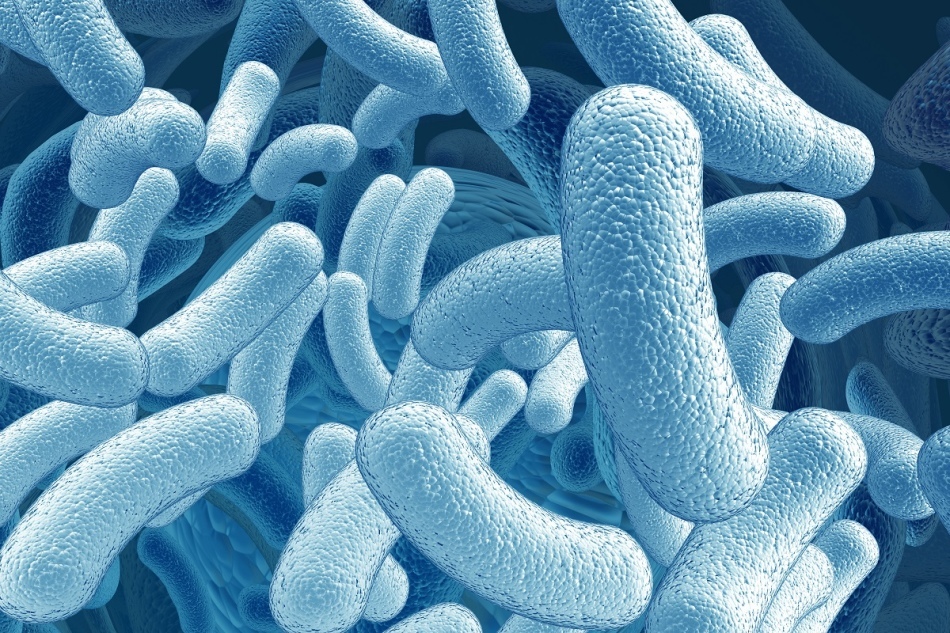 Preparations for children
Preparations for children Probiotic - Maxillac: indications, instructions for use
This drug is one of the most popular probiotics. It is produced only in the form of capsules, which are covered with a coating on top. Most often, "Maxillac" prescribed after a long course of antibiotic treatment to restore all the vital bacteria in the intestines.
Often, "Maxilak" is used to treat dysbiosis and digestive disorders. In a day should take only 1 capsule. Contraindications for the use of "Maxilake" is not, but in some cases there may be an individual sensitivity to the components of the drug.
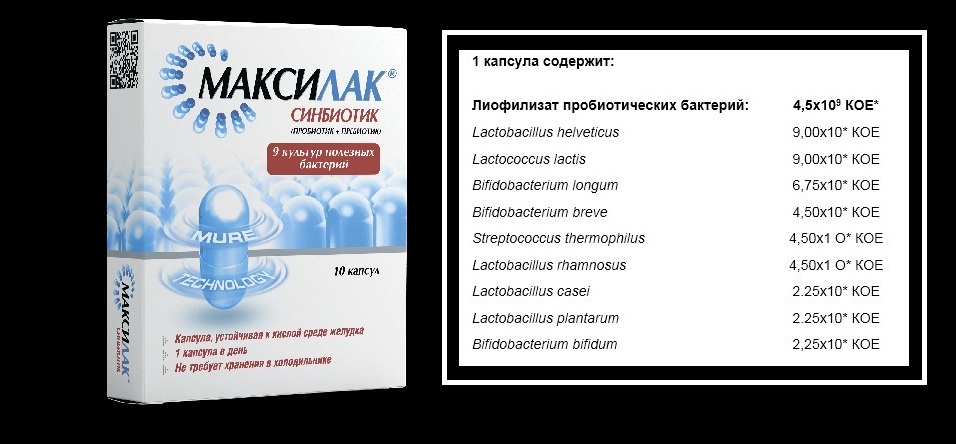
Maxillum
Probiotic - Vetom: indications, instructions for use
This preparation is available only in the form of a powder, its action is to eliminate all possible abnormalities of the digestive system and adjust the digestive system. Reception "Vetom" usually consists of 3 receptions per day for 7-10 days. It does not give any side effect, but people with high sensitivity still need to be careful.
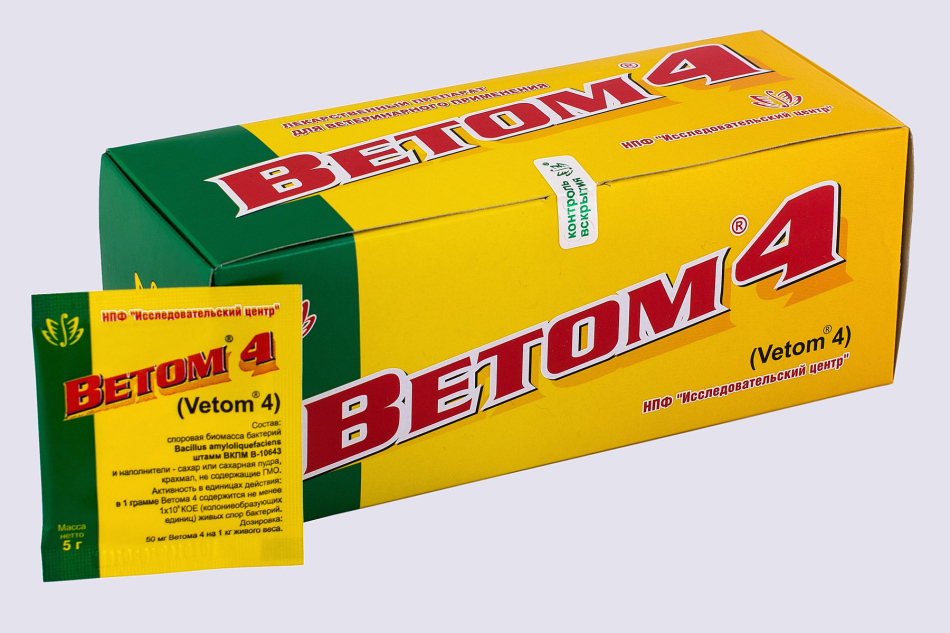 Vetom
Vetom Probiotic - Super 8: indications, instructions for use
This is a popular tool not only to combat dysbacteriosis, but also to improve immunity during ARVI, as well as to eliminate allergies( due to strengthening immunity).The preparation looks in the form of capsules. It is important to know that his reception is allowed only from the age of 19 and only those who do not have a high allergic sensitivity to individual components."Super 8" is unique in that in one capsule the drug has more than 40 billion "useful" bacteria. Daily rate - 1 capsule per day, which should be taken only on a full stomach.
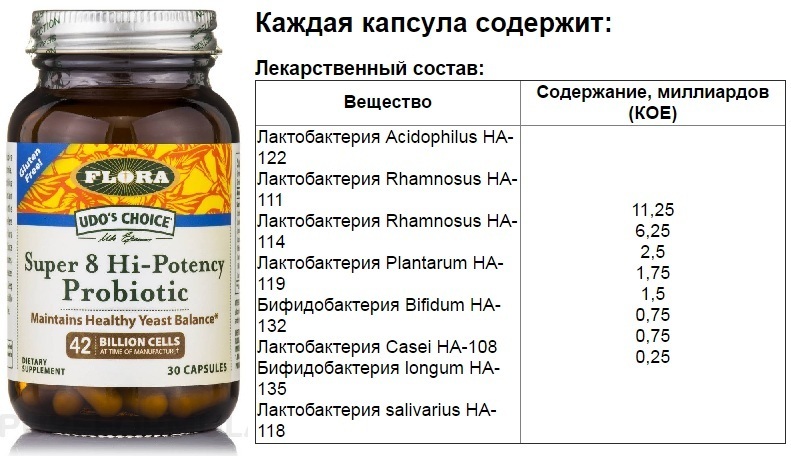 Super-8
Super-8 Probiotic - Narine: indications, instructions for use
A popular probiotic that has several forms of release: tablets( capsules), sachets of powder and bottles of liquid concentrate."Narine" effectively eliminates any intestinal disorders caused by dysbiosis or poisoning.
Many people use the drug as a general restorative. The course of treatment with this drug is from 2 weeks to 1 month, the doctor adjusts the dose of "Narine" per day( 2 or 3 capsules).It should be noted that people with high sensitivity to the components of this remedy may experience a side effect in the form of a quickened stool.
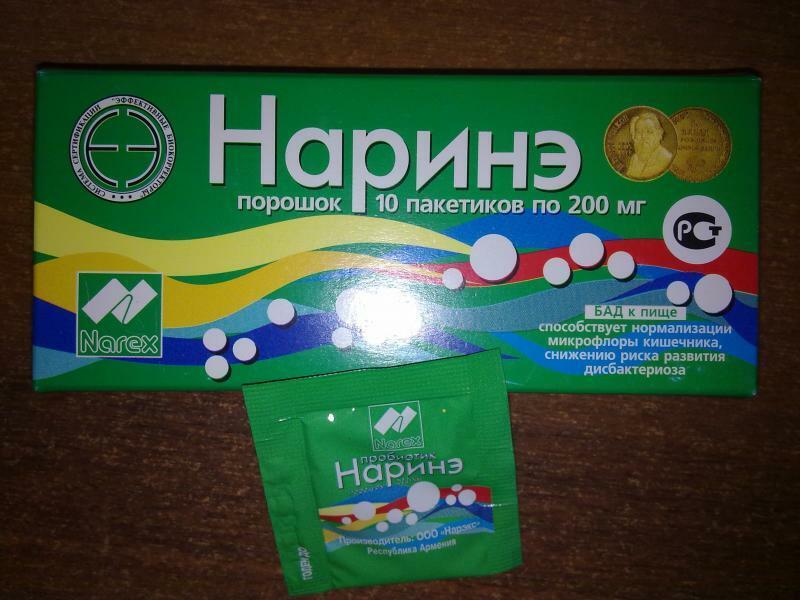 Narine
Narine Probiotic - Enterol: indications, instructions for use
Enterol is the most common drug that is prescribed after a course of antibiotic treatment. Enterol effectively eliminates diarrhea, which occurs as a result of dysbiosis, because of the usual food poisoning. Most often, the drug is prescribed 2 or 3 capsules per day( depends on the nature of the problem and age).
"Enterol" has strict contraindications, for example, it can not be drunk to those who have poor glucose metabolism. Also, the drug should be abandoned to pregnant and lactating women. Another disadvantage of the drug is the possible side effects, which are manifested by nausea, vomiting, and abdominal pain, but the drug with side effects is not canceled.
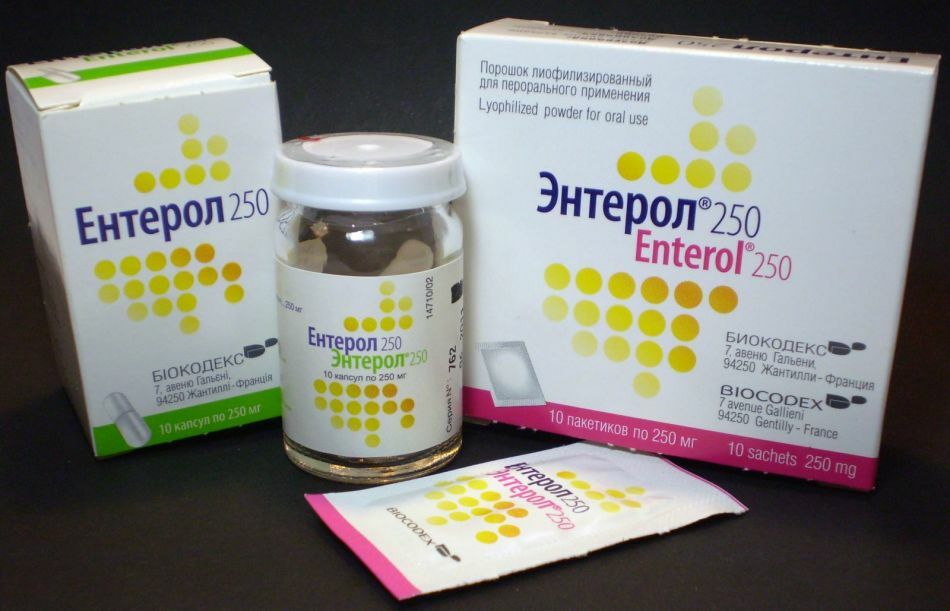 Enterol
Enterol Probiotic - Holi Land: indications, instructions for use
This series of drugs refers to the care cosmetics of the probiotic complex. Each remedy is designed to establish that microflora, which is present on the skin of each person and thereby strengthen "skin immunity".Any remedy can cause an allergic reaction in sensitive people. Jars with soap, whey, or cream should be kept away from sunlight.
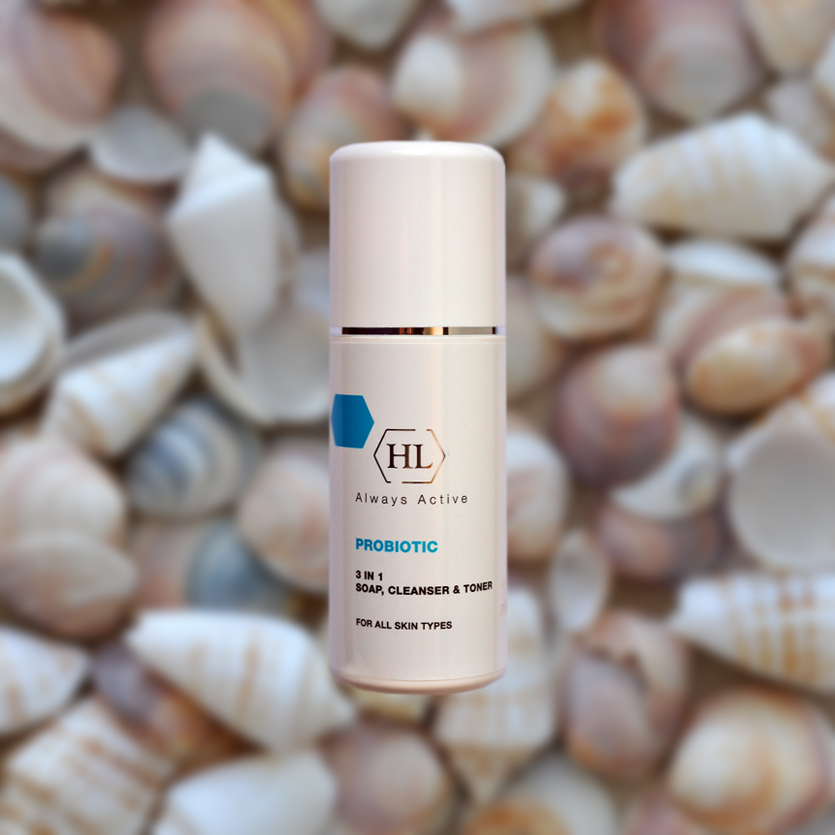 Probiotic Holi Land
Probiotic Holi Land Probiotic - Lineks: indications, instructions for use
The most common and popular means of a probiotic complex. The drug is available only in the form of white capsules."Linex" - an effective tool for getting rid of any dysbiosis, poisoning and digestive disorders. Contraindications for the use of this drug is not, as well as side effects.
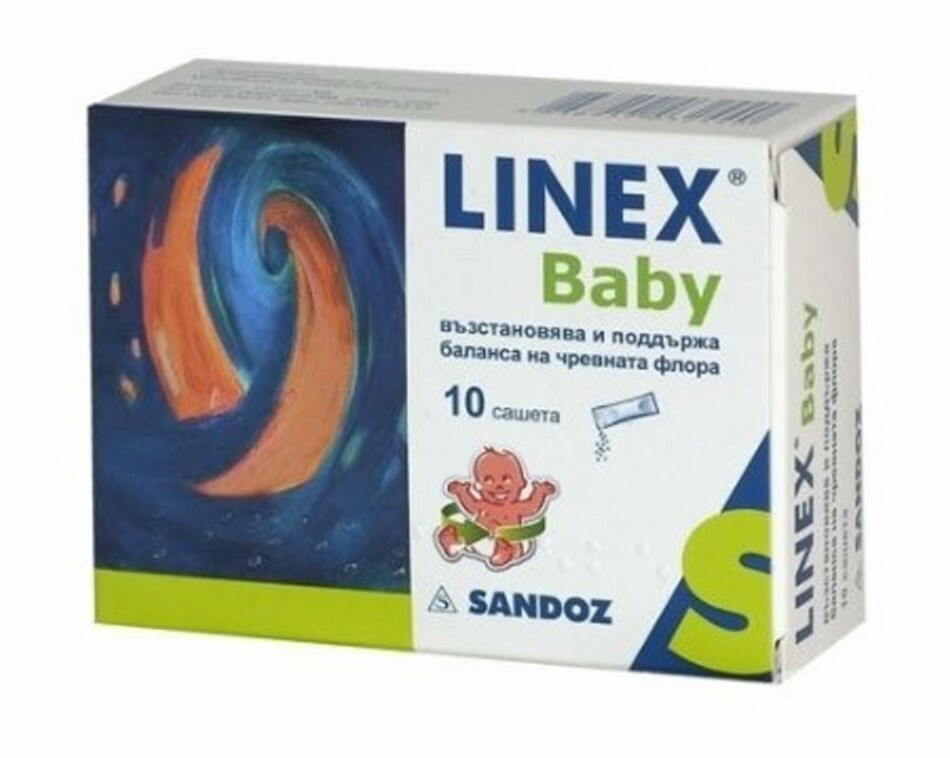 Linex
Linex Probiotic - Bifidumbacterin: indications, instructions for use
This preparation has many forms of release: tablets( capsules), sachets of powder, liquid concentrate( drops), ampoules and even candles."Bifidumbacterin" is intended to improve all metabolic processes, normalize the work of the intestines and relieve dysbiosis, strengthen immunity. The daily dose of the drug is adjusted by the doctor( from 15 to 60 drops per day, the number of capsules or powder).Special contraindications and side effects from taking the remedy were not revealed.
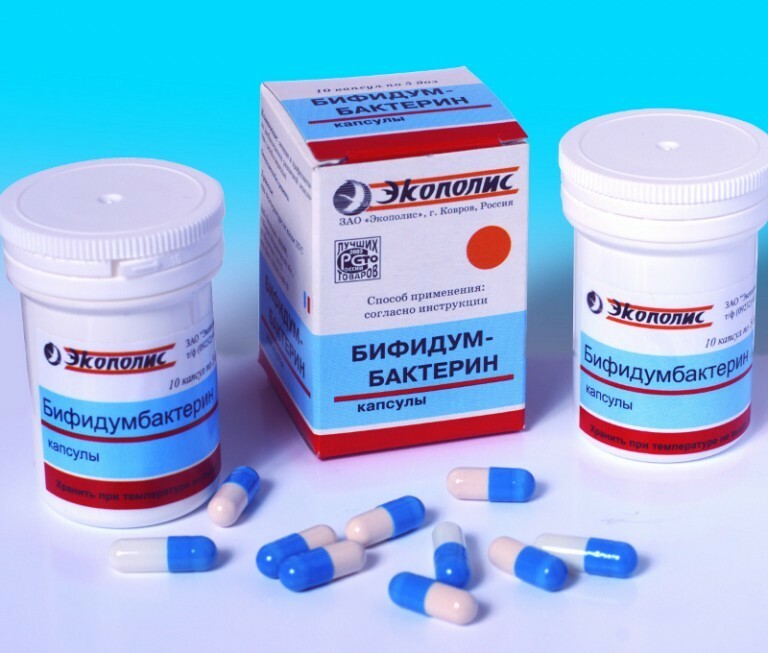 Bifidumbacterin
Bifidumbacterin Probiotic - Bifiform: indications, instructions for use
The drug is available in several convenient forms: sachets with powder for breeding, capsules or chewable tablets for children."Bifiform" helps restore intestinal function after dysbacteriosis or treatment with antibiotics. It also strengthens the immune system and fights against infectious diseases. Side effects of the drug is not, it is well tolerated and has no contraindications.
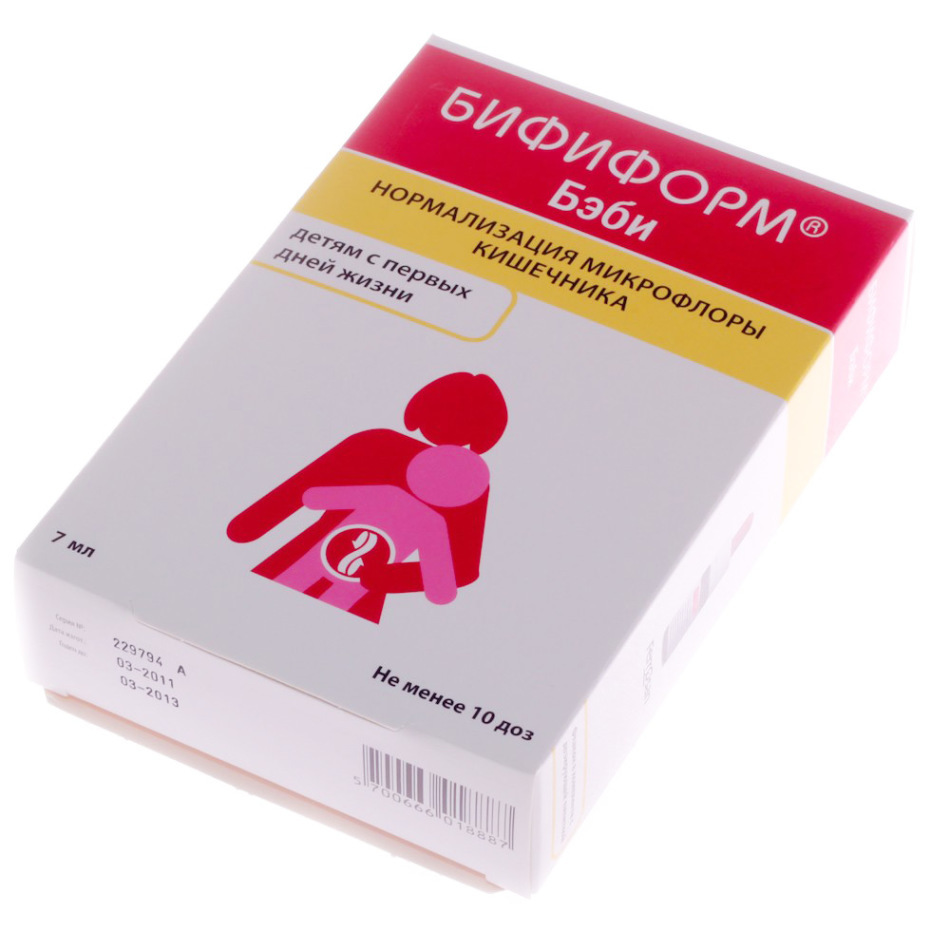 Bifiform
Bifiform Probiotic - Florin Forte: indications, instructions for use
This preparation is available only as a powder for dilution in a liquid. It is necessary for fighting acute infectious diseases, treating poisoning and dysbiosis. The doctor adjusts the daily intake rate, depending on your problem and age. Side effects of "Florina Forte" was not revealed, as well as contraindications.
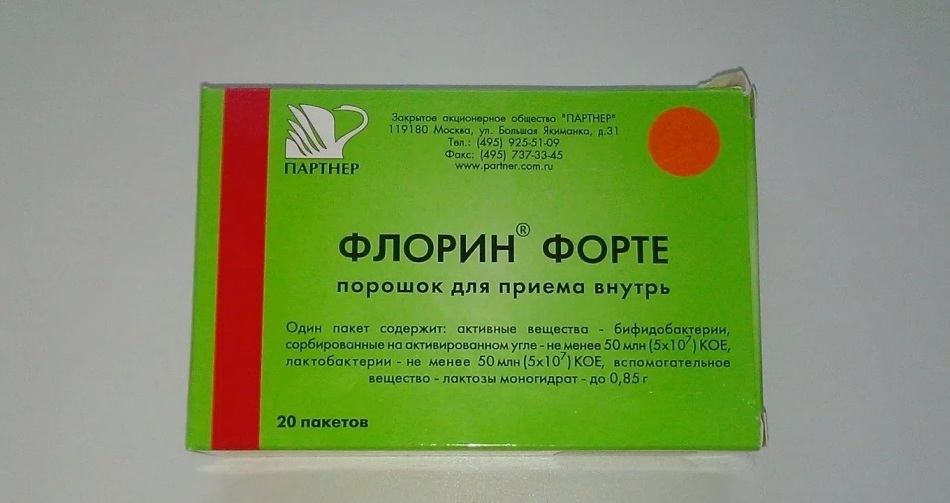 Florin Forte
Florin Forte Probiotic - Hilak Forte: indications, instructions for use
The drug "Hilak Forte" is available only in the form of liquid drops, which must be added to the drink. The product qualitatively and quickly regulates the work of the intestine, restores its microflora. Strict contraindications for the use of the drug is not, but if a person has increased sensitivity to the components, still there may be constipation or diarrhea, an allergic reaction to the skin.
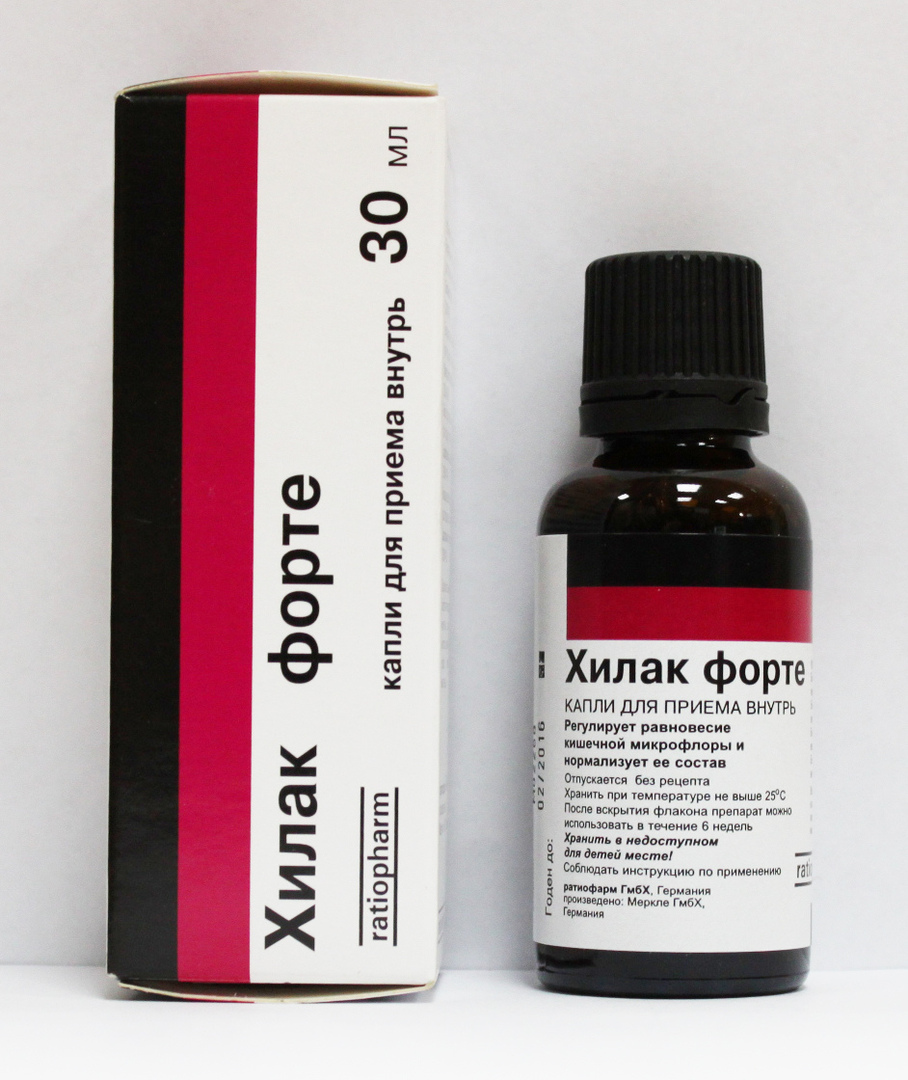 Hilak Forte
Hilak Forte Probiotic - Primadofilus: indications, instruction for use
Modern preparation "Primadofilus" is available in two convenient forms: capsules and powder( for dilution in liquid).The remedy helps to "tidy up" the work of the intestine after taking an antibiotic or poisoning. The dose of the drug should be strictly adjusted by the doctor, since "Primadofilus" has a predisposition to cause an allergic reaction in sensitive people.
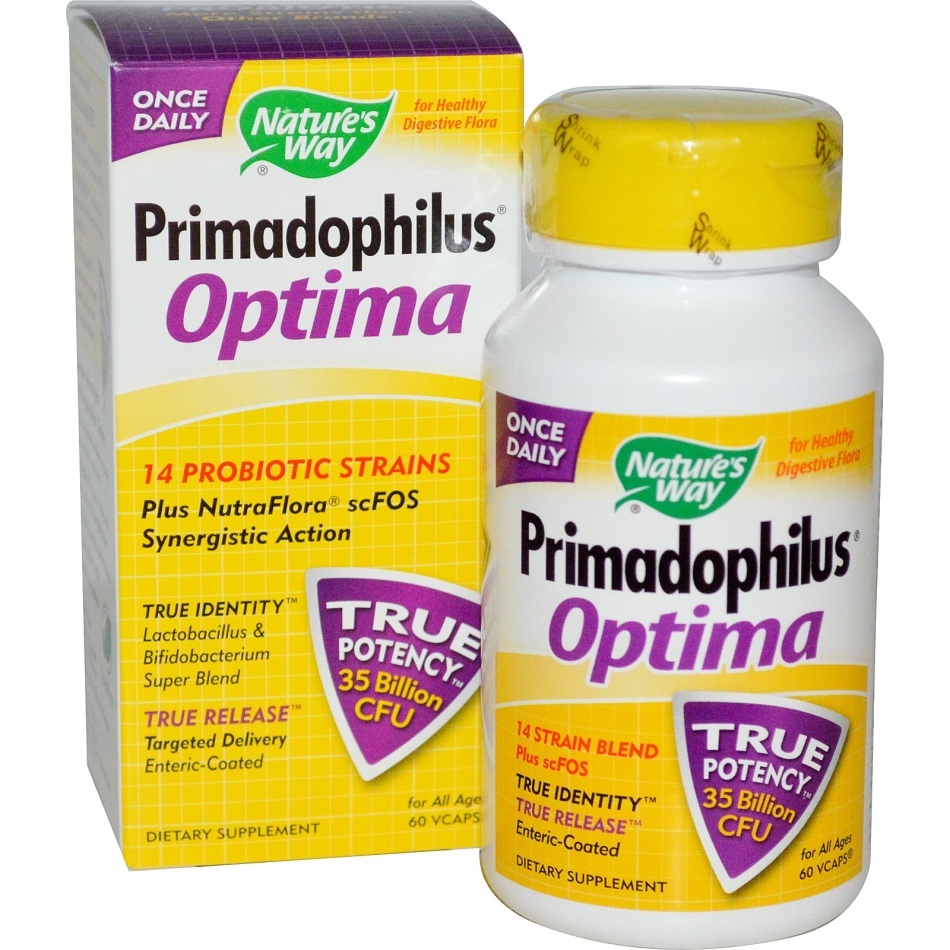 Primadofilus
Primadofilus Probiotic - Acidophilus: indications, instructions for use
This probiotic is available only in one convenient form - capsules. Drink a day follows 1 or 2 capsules( depends on how big the problem of your intestines work).The drug effectively and qualitatively overcomes the problems and diseases of the digestive tract. It is important to know that you can not drink the drug during pregnancy and lactation, as well as people with a high predisposition to allergic reactions.
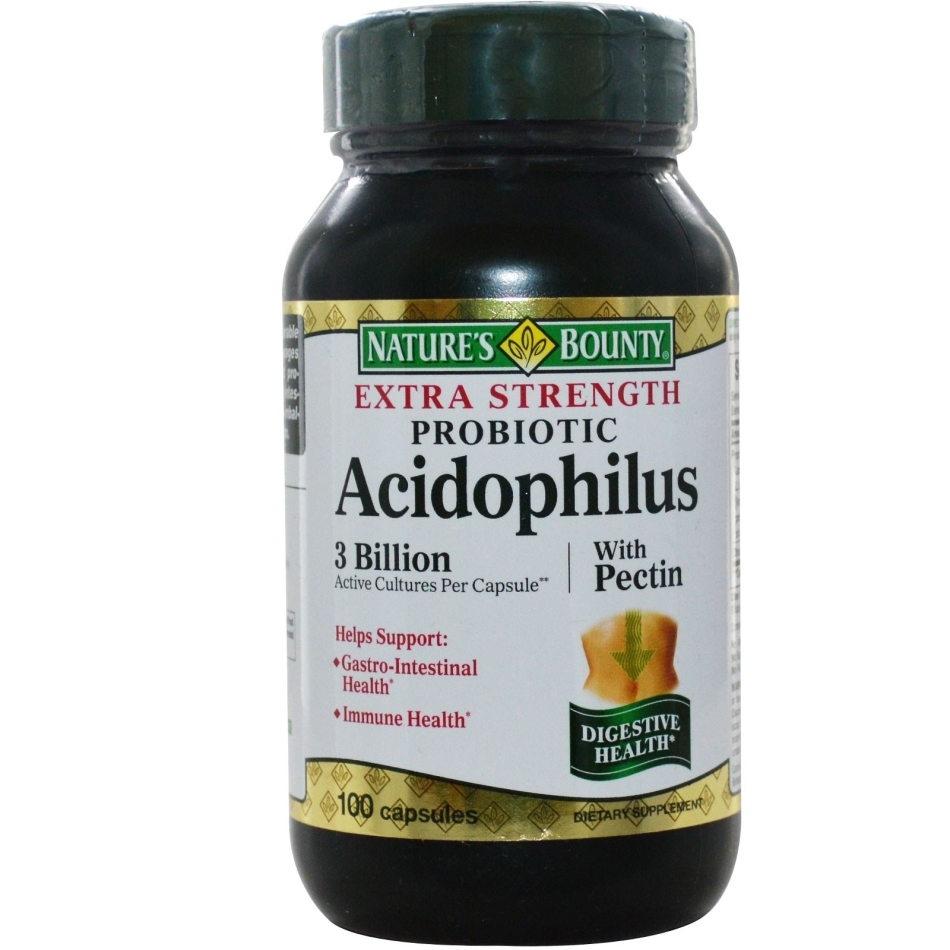 Acidofilus
Acidofilus What is a probiotic in kefir?
Probiotics are live microorganisms that can be found in dairy and fermented milk products. The most useful probiotics can be found in kefir, yoghurt or leaven. The microflora of the intestine is very rich and it is she who is responsible for the strong immunity and good health of a person.
Live kefir or yogurt is filled with a lot of lacto- and bifidobacteria, which are necessary for a normal digestive process. If you drink kefir every day, this will help you to normalize the balance of "useful" bacteria in the intestines, avoid dysbiosis, stool disorder and other problems.
IMPORTANT: Live bacteria die at elevated temperatures, so drink a fermented milk product should only be cold or not above room temperature.
